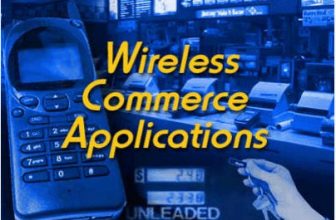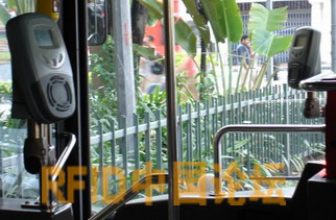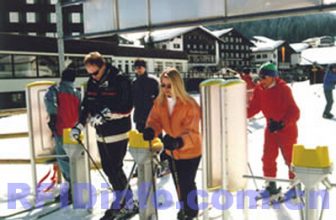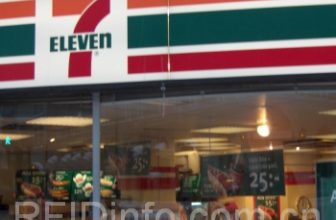
Internet of Things technology applied to e-waste recycling
[ad_1]
In the old days, there were small electronic products such as used CDs, MP3s, and mice at home. Most people would simply throw them in the trash can or hand them to the recycling “guerrillas” on the side of the road for some small money. Right now, the fashionistas in Shanghai are popularly using an “Allah Environmental Card” that integrates the Internet of Things technology to easily realize “turning waste into treasure”. This environmental protection initiative launched by the Pudong Jinqiao Renewable Resources Public Service Platform has attracted 20,000 citizens to participate, and more than 470,000 electronic wastes have been recycled.
“Internet of Things” Recycling System
Cai Ying, a white-collar worker in Shanghai who lives in Jinqiao, Pudong, is one of this group of early adopters. Recently, she received an “Allah Environmental Card” online for free. There is a special environmental protection credit account printed on the card, and 5 “electronic label” stickers printed with barcodes are also attached. Just put this small barcode sticker on the waste electronic products at home and put it in the “Allah Recycling Box” at the gate of the community. After the unified recycling, the environmental protection points obtained by the card can be consumed in major supermarkets and shopping malls in Shanghai. Up. “If the stickers are used up, they can be downloaded and printed online, which is very convenient.”
Don’t underestimate this sticker with a barcode printed on it. This is the country’s first e-waste recycling model. In professional terms, it is the reverse logistics of renewable resources based on the “Internet of Things” technology. Through the bar code recognition system of “Allah Environmental Card”, various information and logistics can be processed uniformly, forming a low-cost recycling system for e-waste. The “e-waste” is put into the recycling bin by itself, which also saves the trouble of making appointments and waiting.
Easily earn environmental protection points
I have seen credit card points and airplane mileage points, but for many people, the “environmental protection points” in Allah’s environmental protection card seem quite novel. Although she has just started “getting started”, Cai Ying already knows the points corresponding to each electronic product. “A mouse can be exchanged for 10 points, a laptop battery is worth 250 points, and every 2500 points accumulated in the account can be converted into 50 points. Yuan consumption amount.”
A netizen named Apple seems to be an “enthusiast” of environmental protection points, topping the list with 131,300 points. “The purpose of introducing this point reward model is to encourage more people to rationally recycle waste electronic items.” According to Feng Liping, deputy general manager of the Jinqiao Renewable Resources Public Service Platform, Alla Environmental Card has developed a detailed recycling points table. , Divided into three categories: computer, communications, and digital products. The smallest mouse corresponds to 10 points, while a mobile phone can exchange 250 points. The redeemed card points can be directly consumed in more than 2,000 merchants in Shanghai, covering various fields such as clothing, food, housing, transportation, medical and health, leisure and entertainment, and can be directly exchanged online for various environmentally friendly points Small gifts.
Drive off the road “guerrillas”
“Allah Environmental Card” has quietly become popular in Shanghai, but the road to rational recycling of e-waste is not smooth. For a long time, formal e-waste recycling companies have always been no match for the road recycling “guerrillas”. The most critical issue is the recycling price. Taking an old washing machine as an example, if it can make 70 yuan to sell it to a hawker, it is generally only worth 50 yuan to go through the formal recycling channels.
“The main business of’Ala Eco Card’ is still small electronic products such as MP3 and mouse.” Feng Liping told reporters frankly that Malu’s “guerrillas” basically only recycle large household appliances, and the small pieces that make little money become Allah. The “breakthrough” of the environmental protection card.
The number of users of the Allah Environmental Card has exceeded 100,000, and the number of registered members has reached 20,000. A total of 387 Allah recycling outlets have been established throughout the city, and 470,000 pieces of electronic waste have been collected. By the end of June this year, the “Allah Recycling Box” will cover 1,000 residential communities, 200 companies and nearly 100 buildings in the city. “On January 1 this year, the new’Regulations on the Management of the Recycling and Disposal of Waste Electronic Products’ came into effect. Those who dispose of waste electrical and electronic products in violation of the regulations will be fined up to 500,000 yuan. We have established 46 Ala environmentally friendly logistics service points in the city. With the help of home appliances’trade-in’ subsidies and gifting of environmental protection points, we hope to compete with the’guerrillas’ in the recycling of large home appliances.”
[ad_2]






